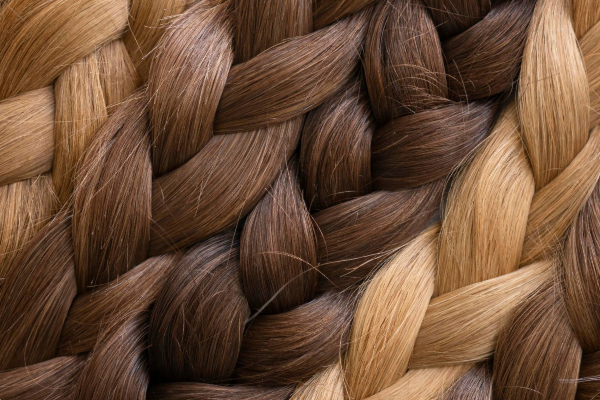10 January 2025
Uncover the Science of Hair Loss: What’s Really Happening
Hair loss—whether it creeps up gradually or happens all at once—can feel confusing, overwhelming and even distressing. If this sounds familiar, know that you’re not alone. At some point in our lives, many of us experience hair loss, but understanding the science behind it can make a huge difference in how you approach it.
What causes hair loss
Let’s take a closer look at what’s happening biologically, the common types and causes of hair loss and what you can do to take back control of your hair health:
The Hair Growth Cycle: Understanding What Causes Hair to Fall Out
Before we talk about hair loss, it’s important to understand the natural hair growth cycle. Every single hair on your head follows this cycle, which has three key phases:
- Anagen (Growth Phase) This is when your hair actively grows, and it can last anywhere from 2 to 7 years, depending on your genetics.
- Catagen (Transition Phase) A short, two-week phase that marks the end of active growth.
- Telogen (Resting Phase) During this time (about 2-4 months), the hair follicle rests before the hair naturally sheds to make way for new growth.
On any given day, around 10% of your hair is in the resting phase, which is completely normal. But when something disrupts this cycle—whether it’s hormones, stress or health factors, that’s when noticeable hair loss can occur.
Types of Hair Loss: Common Conditions Explained
There are many different types of hair loss and knowing which one you’re experiencing is the first step to finding the right solution. Let’s break down the most common causes of hair fall:
1. Androgenetic Alopecia (Pattern Hair Loss)
This is the most common type of hair loss, affecting both men and women. You may know it as male or female pattern baldness and it’s driven by a combination of genetics and hormones.
- A hormone called Dihydrotestosterone (DHT) shrinks your hair follicles, causing them to produce thinner, weaker hair over time.
- For men, this often leads to a receding hairline and thinning at the crown.
- For women, it typically causes overall thinning, particularly on the crown of the head.
2. Telogen Effluvium (Stress-Related Hair Loss)
If you’ve noticed sudden, excessive shedding—perhaps after a period of stress, illness, surgery, or a major life change—Telogen Effluvium may be to blame.
- Stress pushes a large number of your hair follicles into the resting (telogen) phase, leading to more shedding than usual.
- The good news? This type of hair loss is often temporary and can improve once the underlying stressor is resolved.
3. Alopecia Areata (Autoimmune Hair Loss)
This type of hair loss, Alopecia Areata, occurs when your body’s immune system mistakenly attacks hair follicles, leading to small, round patches of hair loss.
- While the exact cause isn’t fully understood, it’s believed to be related to autoimmune issues.
- In some cases, it can progress to more widespread hair loss, but the condition can also improve or resolve with the right hair loss treatment and support.
Why Are My Hairs Falling Out? Other Factors That Can Contribute to Hair Loss
Beyond the main types of hair loss, other factors can play a role in disrupting your hair’s growth cycle:
- Nutritional Deficiencies: A lack of iron, zinc, or biotin can weaken your hair.
- Hormonal Changes: Pregnancy, menopause, or thyroid issues can cause temporary or permanent thinning.
- Medications: Certain drugs—like chemotherapy—are well-known to disrupt the hair growth cycle.
How to Stop Hair Loss: When to Seek Treatment
Here’s the most important takeaway: you are not powerless when it comes to hair loss. By identifying what’s causing your hair to thin or shed, you can take steps toward finding a solution that works for you.
Personalised Hair Loss Solutions at Hove Hair Clinic
At Hove Hair Clinic, we don’t just treat symptoms; we work with you to uncover the root cause of your hair loss and develop a personalised plan to support your hair health.
Whether you’re experiencing pattern hair loss, stress-related shedding, or something else entirely, we’re here to guide you through it.
If you’re ready to take the next step or need support on your hair growth journey, reach out to our team on 01273 711140.
At Hove Hair Clinic, we’re here to help you every step of the way.
